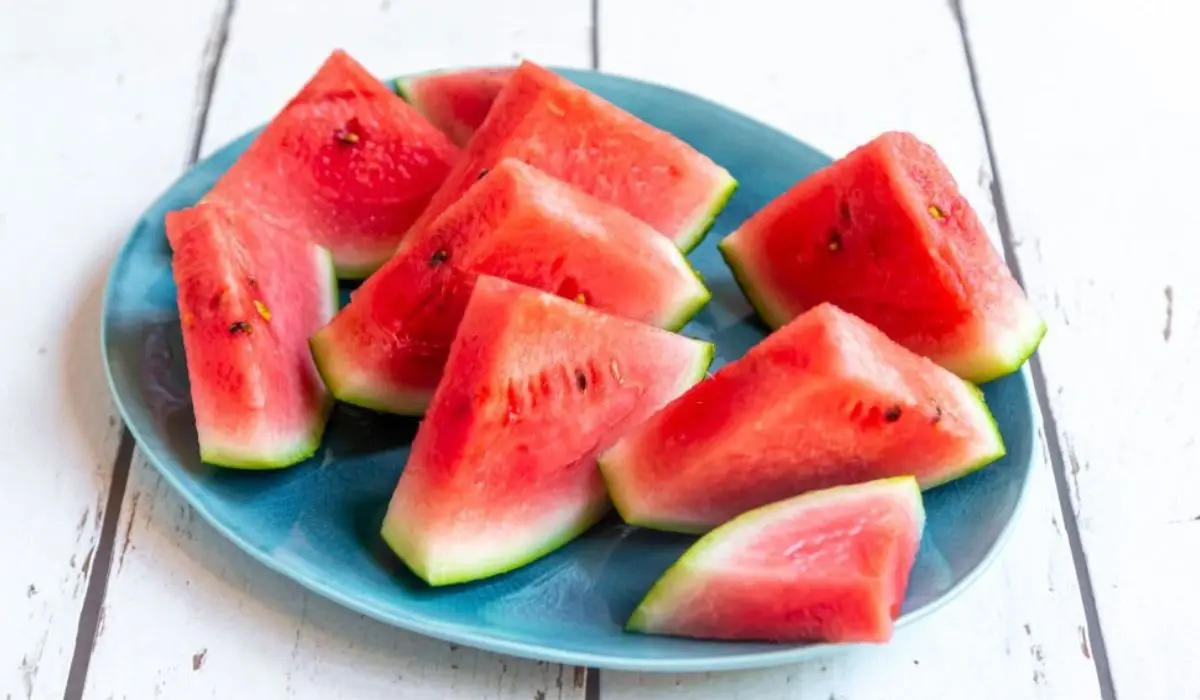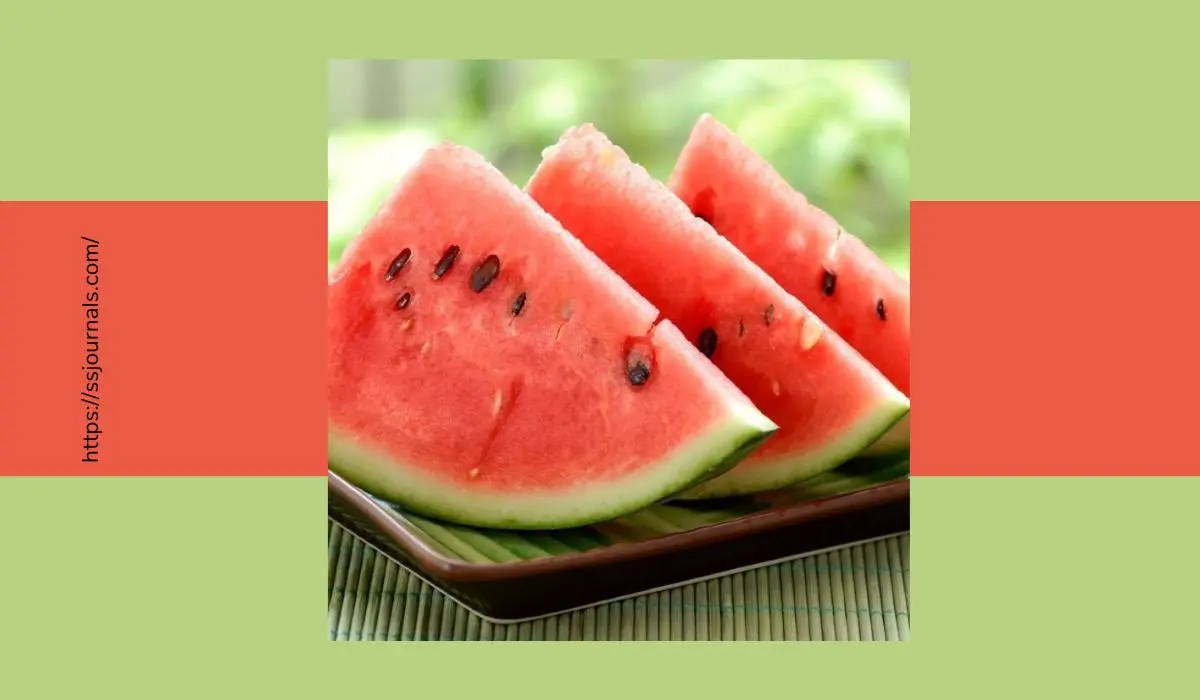Watermelon is a delicious and refreshing summer fruit enjoyed by many. However, conflicting reports circulate on whether watermelon has acidic or alkaline properties. Why does it matter?
Is Watermelon Acidic?
Eating too many acidic foods may contribute to issues like tooth enamel erosion, heartburn, and altered gut microbiome balance. So understanding watermelon’s pH is key for those looking to follow an alkaline diet.

In this article, we’ll dig into the evidence on watermelon’s acidity or alkalinity, the nutrients involved, its effects on the body, and how to enjoy watermelon as part of a balanced diet.
Watermelon’s pH Level
The first factor determining a food’s acidity or alkalinity is its pH value. The pH scale ranges from 0-14, with lower numbers indicating increasing acidity and higher numbers denoting alkalinity. Pure water has a neutral pH of 7.
Most fruits and vegetables are considered acidic, falling in the pH range of 2-4 when tested. Surprisingly though, scientific measurements place watermelon’s pH between 5.2 – 5.8, edging closer to neutral.
So while not extremely alkaline, watermelon’s pH is less acidic than citrus fruits, berries, and tomatoes. Melon’s juicy red flesh and seeds register a mildly acidic to neutral pH. This makes watermelon one of the least acidic fruits you can enjoy.
Watermelon’s Acidic And Alkaline Nutrients
Beyond pH, foods also contain specific nutrients that induce acid or alkaline effects in the body. What do watermelon’s nutritional components suggest about its acid-base effects?
Acidic Contributors
◾️ Lycopene – This antioxidant phytonutrient may promote acidic effects.
◾️ Fructose – Watermelon’s natural sugars can form acids during metabolic breakdown.
◾️ Ascorbic acid – While vitamin C is an antioxidant, its chemical name reflects acidity.
Alkaline Promoters
◾️ Minerals
Watermelon provides alkaline-forming potassium, magnesium, calcium, and phosphorus.
◾️ Citrulline
This amino acid has neutralizing effects once metabolized.
◾️ Flavonoids
Antioxidants like beta-carotene have alkalizing properties.
So watermelon contains both acidic and alkaline-promoting elements. But its rich mineral content tilts the balance toward an overall neutral to mildly alkalizing effect in the body.
Indicators Watermelon Is Not Highly Acidic
Here are other clues from watermelon’s nutrition and effects on the body suggesting it is not strongly acidic:
For all these reasons, watermelon is considered a moderately acidic to neutral fruit, especially when compared to many other fruits.
Effects Of Watermelon’s Acidity On The Body
What does watermelon’s mildly acidic nature mean for your health? For most people, watermelon does not negatively affect acid-base balance.
However, those with certain health conditions may want to exercise some caution:
For people who follow an alkaline diet, incorporating watermelon alongside other alkaline foods can provide hydration, nutrients, and antioxidant benefits without overly disturbing pH balance.
Those with medical conditions can work with their healthcare provider to see if dietary adjustments to watermelon intake may be helpful.
Tips For Balancing Watermelon’s Acidity
Here are some ways to counteract watermelon’s minimal acidic qualities if you are watching your acid load:
➔ Consume watermelon in moderation as part of a vegetable-rich meal.
➔ Have it as a mid-day snack instead of later at night to avoid reflux issues.
➔ Mix watermelon with other more alkaline fruits like melon, mango, or papaya.
➔ Add alkaline lemon juice as a flavor enhancer rather than syrups.
➔ Sprinkle watermelon with lime or lemon juice to stimulate saliva flow after eating.
➔ Rinse your mouth with water after eating to neutralize acids.
➔ Wait at least 20 minutes after meals to brush teeth to avoid damaging enamel.
The Verdict On Watermelon’s Acidity
While not extremely alkaline, watermelon’s mild acidity measured by pH, nutrient profile, and effects on the body classifies it as reasonably neutral to only slightly acidic. Watermelon makes a healthy, hydrating choice as part of an overall balanced diet.
Just practice common sense if you have reflux, dental issues, kidney problems, or follow a strict alkaline diet. When enjoyed in moderation, watermelon’s many nutrients and hydration benefits appear to outweigh minimal acidic qualities.
FAQs
Absolutely! Watermelon’s alkaline nature makes it a safe choice for those with acid reflux or sensitive stomachs.
Yes, you can enjoy watermelon daily as part of a balanced diet. Its hydrating properties and nutrient content make it a healthy choice.
Yes, the pH of watermelon can vary slightly based on factors like ripeness and variety. However, it remains within the mildly alkaline range.
While watermelon is hydrating, it should not replace water entirely. Drinking plain water is essential for overall hydration.
Seedless watermelon generally has a similar pH to seeded watermelon. The absence of seeds does not significantly affect its acidity.

